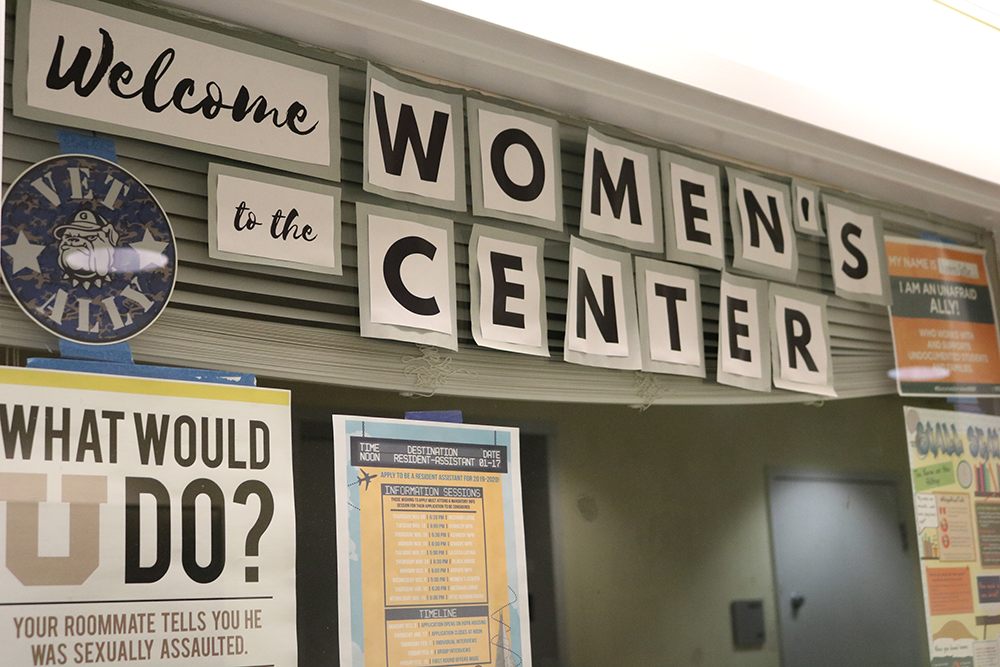Georgetown University officially updated its Title IX sexual misconduct policies in accordance with binding guidelines set by the Department of Education in May, according to a universitywide email.
The new DOE regulations tighten the definitions of sexual misconduct and limit the scope of sexual misconduct cases that fall under the protection of Title IX, a 1972 law that prohibits discrimination based on sex in federally funded academic institutions or programs and outlines procedures to investigate sexual misconduct on college campuses. Georgetown’s update to its sexual misconduct policies went into effect Aug. 14, the deadline for universities set by DOE in May.

To ensure instances of sexual harassment that would have been investigated under the old standards will continue to be investigated after DOE’s rollback of Title IX protections, Georgetown has adjusted its definitions of sexual misconduct and sexual harassment. The university uses the term sexual misconduct to include all inappropriate conduct that merits investigation. Title IX sexual harassment refers to a more specific category of incidents defined by DOE.
Despite DOE’s changes, the university plans to continue to cover the same scope of sexual misconduct, including off-campus sexual misconduct. Complainants may choose to resolve their case outside a formal investigation process, but if a misconduct case reaches the investigation and hearing phase, the case will proceed according to one of four different grievance procedures, whether that of the main campus, the School of Medicine, the Law Center or the Office of Institutional Diversity, Equity, and Affirmative Action.
Depending on who the sexual misconduct complaint is brought against, different university offices may carry out the investigation, according to the university’s revised policies. For sexual misconduct complaints brought against most undergraduate and graduate students that do not meet the definition of Title IX sexual harassment, the Office of Title IX Compliance will be notified and will appoint an investigator. For those complaints brought against law students, an appointed investigator or the Law Center’s Ethics Counsel may investigate, and for medical students, the Sexual Misconduct Subcommittee of the Committee on Students will investigate. For complaints against university employees, IDEAA will investigate.
Cases that do fall under the new definition of Title IX sexual harassment and involve students or faculty and staff will be subject to cross-examination and mandatory live hearings before a panel comprised of one student, one faculty member and another person trained in handling sexual misconduct complaints. All cases of sexual misconduct require hearings, but according to the university’s new policies and procedures, hearings for cases of Title IX sexual harassment will involve additional cross examination of the complainant and respondent by the other party’s chosen or university-appointed adviser.
The new regulations narrow the Obama administration’s definition of sexual assault, which included verbal abuse such as sexual jokes, comments or rumors, as well as sexual violence and other inappropriate conduct. Sexual harassment under the new set of definitions includes quid pro quo harassment — in which benefits are granted by a person in power in exchange for sexual favors — sexual assault and other forms of violence as defined by the Clery Act, and “unwelcome conduct” that is “so severe, pervasive, and objectively offensive that it effectively denies a person equal access.”
After the new Title IX regulations were first proposed by DOE in 2018, Georgetown hosted several feedback sessions and town halls, rebuking the proposed changes and then submitting an 11-page letter to Secretary of Education Betsy DeVos in January 2019. The letter expressed the university’s concerns that the proposed changes would not foster a fair and just process for students filing Title IX complaints. Georgetown administrators also hosted a webinar in July as an opportunity for students to learn and ask questions about the new regulations.
This is a developing story.
CORRECTION: A previous version of this article did not explicitly note that parties to a sexual misconduct case may resolve the case outside of the hearing and investigation process. The article has been updated to reflect this information and to note the different grievance procedures such a case might follow.




















